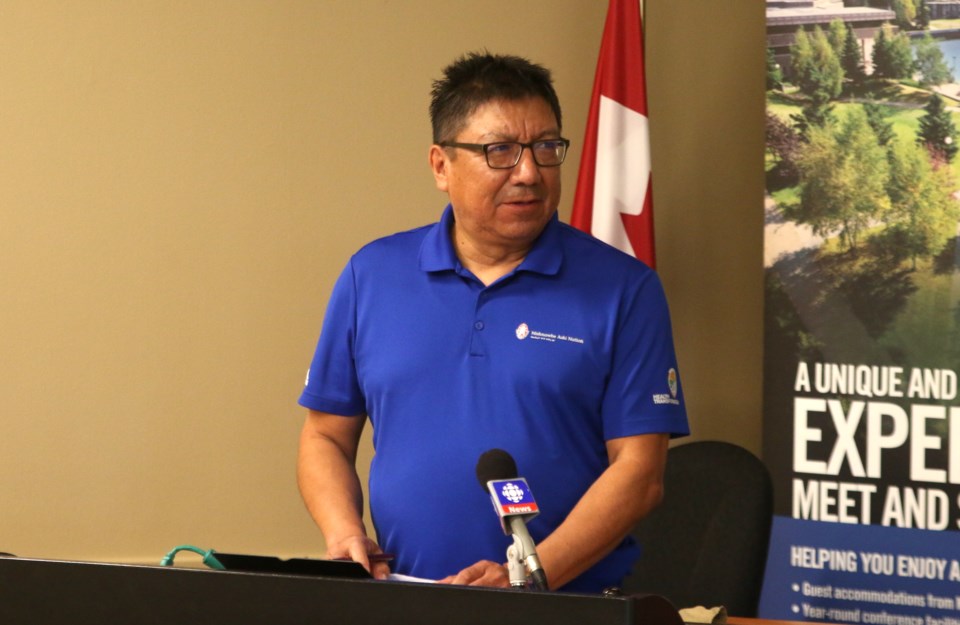THUNDER BAY - In an effort to reduce dependence on fossil fuels, while also keeping communities sustainable and safe, the federal government is investing nearly $13 million in biomass projects in First Nation communities across the north.
“When we do the right thing for people, it’s also the smart thing for the economy,” said Minister of Health Patty Hajdu, who made the announcement on behalf of Minister of Natural Resources Seamus O’Regan on Monday.
“It’s all wrapped up together. People need to thrive, they need to be safe, and they need to feel secure and feel like the have been included in the economy.”
The $13 million investment includes $2.4 million for the Wiikwemkoong Development Commission to demonstrate the effectiveness of forest-based biomass for heating in the Wiikwemkoong Unceded Territory.
“Having the support in the bio-heat sector, we are able to provide a number of opportunities for our communities to not only convert our buildings and homes to bio-heat but also to respect our balance of being stewards of the land, protecting the environment, and building employment opportunities,” said Ogimaa Duke Peltier of Wiikswemkoong Unceded Territory.
Peltier said the community has converted 102 homes to pellet stoves and the addition of biomass boilers and wood pellet furnaces will reduce the community’s reliance on fossil fuels.
“We know by doing this type of work we are offsetting the existing usage of fossil fuels with their installation of these pellet stoves and we know creating community capacity and infrastructure for storage and servicing maintenance and delivery we are creating these investments into this sector,” he said.
Bingwi Neyaashi Anishinaabek also received $1.05 million to replace the community’s sawmill diesel heath source with a biomass system and install biomass-heating systems in three new housing units.
“It is projects like this that allow my First Nation to develop in a clean and environmentally stable way and provide a better future for our children and grandchildren,” said Bingwi Neyaashi Anishinaabek Chief Joe Ladouceur.
Included in the $13 million investment, Nishnawbe Aski Nation also received $2.5 million to replace woodstove heating appliances with upgraded high-efficiency woodstoves in six NAN communities.
NAN Grand Chief Alvin Fiddler said the announcement is significant because it comes with the resources to build the infrastructure needed in the communities.
“My hope is if we can really demonstrate how effective and how critical this is that the federal government would be more receptive to having an initiative like this right across the NAN territory,” he said. “It’s really important we meet the objectives we set for ourselves with this announcement and build a business case for other communities.”
Fiddler added the addition of high-efficiency woodstoves will also help make communities safer.
With some communities not having fire trucks, fire hydrants, or fire services, Fiddler said the long-term objectives will be building the capacity for more universal fire safety standards.
“What I want to see moving forward is we start to create standards on fire safety for our communities,” Fiddler said. “Which will be applied right across the NAN territory.”
Other projects receiving funding include $1.6 million for Askii Environmental Inc. to install biomass heating systems in Kitchenuhmaykoosib Inninuwug First Nation and Pikangikum First Nation, $4.1 million for Sagatay Cogeneration Limited Partnership to develop plans for a biomass cogeneration system, and $983,000 to Wahgoshig First Nation to install forest-based Biomass heating systems in four community buildings.
“In order for people to want to stay in communities, they have to feel they can heat themselves safely and power themselves safely and there is actually a vision of prosperity for the community,” Hajdu said.
“If you don’t have a healthy environment, that includes a health social environment, you can’t move forward with prosperity.”
